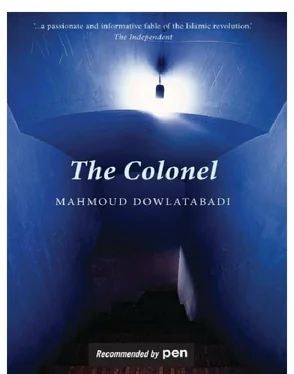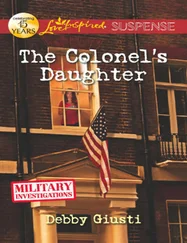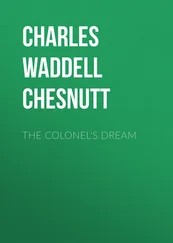Anyone else would have thought that those four lads had picked the woman up for a gang bang and were now dropping her off near her home. But, in spite of their dirty laughs, such a thought never crossed my mind for a fraction of a second. Yes, a fraction of a second, that’s all it takes for the brain to cover a lot of ground and process a whole load of random impressions. But believe me, when I say that not for an instant did I entertain a single dirty thought about that woman. I was completely distraught and paranoid and, for some stupid reason, all I could think of — though it was nothing to do with me — was how the taxi system could be better organised, so that one could get one at any time of day or night. At the same time I knew Nur-Aqdas must be worrying about how late I was.
Amir had only had one brush with the security police before, and he had got off with a warning that time. It was the stories he kept on hearing about them from other people that made him permanently afraid of them. The empty streets that night, the strange goings-on at that party, and that inexplicable bloodstained knife — it all conspired to reawaken his dread of the police. He began to feel guilty for a crime that he had not committed.
A police motorcyclist suddenly appeared out of the darkness. In a show of innocence, Amir flagged him down and asked him the way to the bus station, even though he knew it was just a short way up the road. He grumbled about the lack of taxis, which seemed to pack up early for a big city. Then he saw that the policeman was just a traffic cop. No matter — the police were the police and fright was fright. The young policeman, who clearly came from the sticks himself, told the small-town lad, lost late at night in the big city, that he had better get a move on if he wanted to catch the last bus, which was leaving from the stop outside the National Park in a few minutes, as he would have trouble finding a taxi at that hour. Amir realised that he didn’t have a bus ticket on him. The policeman pulled a sheaf of tickets out of his pocket, and the small-town lad bought half a dozen off him and raced off.
From a distance he could see the bus, just under the archway into the National Park, with the last few passengers getting on. Then he lost all sense of direction. The archway faced north-south, but now in his mind it seemed to face east-west. He was pretty sure the bus was going in the direction he wanted, towards Sepah Avenue, Salsabil and Jey. 19 I didn’t care where it was going, but it was bound to be somewhere beautiful and heavenly. Even if it was the wrong bus, he would run for it anyway. He just had to get away from there as fast as he could. But before he could reach the step and swing himself on board, the bus pulled away and left him standing. For the first time in his life, he was overcome by a feeling of utter despair.
He stood there, stiff now and confused, until he pulled himself together. Wandering off, he found himself going up the steps of the central post office, with its pre-war German architecture. He leant against the wall; all of a sudden, as though they had simply boiled up out of the ground, a great flood of people came spilling out. Amir realised that some sort of celebration was going on in the main hall of the post office and that there was no room for them all inside.
They were all bazaar folk, and some of them seemed to know me and came up to shake my hand, or gave me a nod. They were such ordinary folk that my clothes looked very new against theirs and I felt embarrassed. They were all dressed alike, in a forties or fifties style. Later, I saw television footage of street demonstrations from that period where people were dressed like that, with double-breasted jackets, hair parted on the left and pencil moustaches. 20
He was dazed, tired and thirsty and had forgotten that he had to get to Nur-Aqdas’s house, wherever it was. He just wanted to find a quiet corner to sit down, but there wasn’t room to swing a cat in that crowd, and no way of getting a glass of tea, or even a glass of water. He felt unsafe in a crowd. His tight collar was suffocating him, and he twisted his neck this way and that to get some relief. It had not occurred to him to undo his collar button. In the middle of his contortions, he suddenly saw a police vehicle pull up by the kerb. It was a paddy wagon, with a side door that could be opened to snatch people off the street. A bunch of armed policemen jumped out, looking agitated. Some of them were talking into pocket radios. Amir could not hear what they were saying, but he guessed that all this kerfuffle had to do with something that had happened, or some ceremony that was about to take place, that he had not heard about.
I had guessed right. In no time at all a group of men in smart new dark suits, shiny black shoes, clean-shaven and with neatly combed hair, gathered round the police van. Their numbers grew as they went up the steps in front of the building next to the post office, which led to the front of the senate house.
The throng was now pushing its way up to the senate building, forcing Amir back down the steps. He was being pushed back towards the entrance by the crowd, which seemed intent on forcing its way in. As he struggled to keep upright, he caught sight of the old banger again, with its strange combination of green and rusty blue paint, parked at an angle on the south side of the road. It was on the kerb, tipped over onto its left side. The passenger-side doors were flung open and the roof appeared to have been blown open by a grenade or a small bomb. It was riddled with bullet holes and the dust of a hundred years of death appeared to have settled on the seats. There was no sign of the four young men who had been in it before, just a trickle of blood and engine oil dripping from the back seat onto the road.
Water… water… just a sip of water… My tongue feels as dry as a brick. My mouth’s on fire. A sip of water, just a drop…
He had to think hard to find a way out of this bizarre adventure, out of this story that had started with Mansour Salaami’s bloodstained knife and had led on to Nur-Aqdas’s room on the second floor of her aunt’s house, squeezing the juice out of Amir’s heart as it went on its simple way. Against his will, he was being thrown from one frying pan into one fire after another, each one hotter than the last. He was being passed from the jaws of one defeat to another, which could end only in his death. But what was killing him now was his thirst, which he could not do anything about. The crowd that kept pushing him into the building was not interested in the raging thirst of a young small-town boy.
The senate building was a glorious architectural mish-mash of vernacular and foreign styles from unrelated periods. The ceiling was supported by thick, round pillars finely carved in the Greek, Roman and Persian styles. It was reminiscent of the Reichstag in the way it conveyed a sense of might and majesty. It had the same kind of showy opulence that Reza Shah, who had built it, had once seen, or thought he had seen, in the Christian churches he had visited in Isfahan and Rezaiyeh, but it also called to mind the proportions of the Vakil Mosque in Shiraz. The floor of the entrance hall was covered with red carpeting that was clearly not the work of Persian weavers. It was completely plain, with none of the wonderful workmanship of Kashan, Tabriz or Isfahan to be seen anywhere. Amir could not work out where it might have been made. At the end of the hall he could just make out what looked like a kind of huge prayer-niche. It looked nothing like his idea of Zoroastrian or even Buddhist architecture. He had never seen a synagogue either, not even in films, so he could not tell if it looked like one or not. With its tall, massive carved pillars, the place was unlike anything he had ever seen. It was not like a church, either, which would be all draped in purple, with dark bare benches, he thought, not like the bright and shiny furniture here. And yet, despite the fact that this hall was like nothing he had ever seen, it seemed somehow familiar to him, perhaps because it oozed power from every detail, like the winter prayer hall of a mosque, or a church, a synagogue, a fire temple, or even the Reichstag.
Читать дальше












